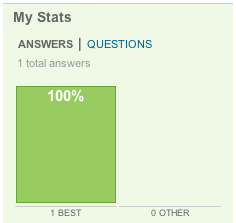 I finally read Time Magazine’s 2006 Person of the Year issue (as usual, I’m a month behind this guy). By now you know that the Person of the Year is “You”, meaning Internet users, meaning that user-generated content (UGC) is King.
I finally read Time Magazine’s 2006 Person of the Year issue (as usual, I’m a month behind this guy). By now you know that the Person of the Year is “You”, meaning Internet users, meaning that user-generated content (UGC) is King.
There are some high points. Brian Williams, an old-media icon, clearly gets how his industry is changing, though his main point — that society is splintering into information silos where people “consume only what [they] wish to see and hear” — feels overblown: is the silo effect really any worse than it used to be when information was less accessible? Another op ed by Steven Johnson argues that UGC is largely filling a new niche rather than displacing professional content, and I tend to believe him. The YouTube creation story is fascinating, and seems more carefully done than the typical tales, which apparently leave out one of the three co-founders. The most entertaining piece is by Joel Stein about his foray into Second Life: hilarious!
My main complaint lies in Time’s choice of exemplars of the new world order. While YouTube is a no-brainer selection, a wonderful service, and a global phenomenon accelerated by Google’s name and $1.65 billion, Time appoints YouTube the protagonist and crown jewel, to the point where it feels like YouTube, not You, is the real Person of the Year. Meanwhile, MySpace and Yahoo! actually serve more videos to more people. Although these numbers reflect all videos, not just user-generated videos, the most popular items on YouTube are mainly not user-generated either. And it’s too early to judge YouTube’s monetize-ability and legal standing. Time even declares NetFlix a representative company. While NetFlix is certainly a great LongHighNew TailTechMedia company (I’m a subscriber), it’s not exactly indicative of UGC.
Flickr and del.icio.us are highlighted, though I don’t believe either is explicitly identified as a Yahoo! company (whereas the GooTube marriage figures prominently). In fact, I don’t recall Yahoo! being mentioned by name at all in the issue. (At this point readers may chalk up my complaint as a petty defensive gripe, and I don’t blame you: it’s certainly partly that.) So is Yahoo! failing in its publicly avowed strategy to embrace UGC and social media in a big way?
I don’t believe so. The *.yahoo.com family (still the #1 web property worldwide) is brimming with UGC: Answers, Finance, GeoCities, Groups, Local, Movies, Music, My, MyWeb, 360, Video, etc.
Yahoo! Answers by itself is now the 100th most visited web domain, capturing a 96% share of Q&A services, a growth area that already dominates traditional web search in some Asian countries. Yahoo!’s UGC strategy is perhaps most clear in its acquisitions: Flickr, del.icio.us, Konfabulator, JumpCut, Bix, MyBlogLog, etc. Mix in Yahoo!’s developer network, RSS fanaticism, and open spirit, and I find it hard to think of a company more representative of the user-genera-nation.









 I finally read Time Magazine’s 2006 Person of the Year issue (as usual, I’m a month behind
I finally read Time Magazine’s 2006 Person of the Year issue (as usual, I’m a month behind